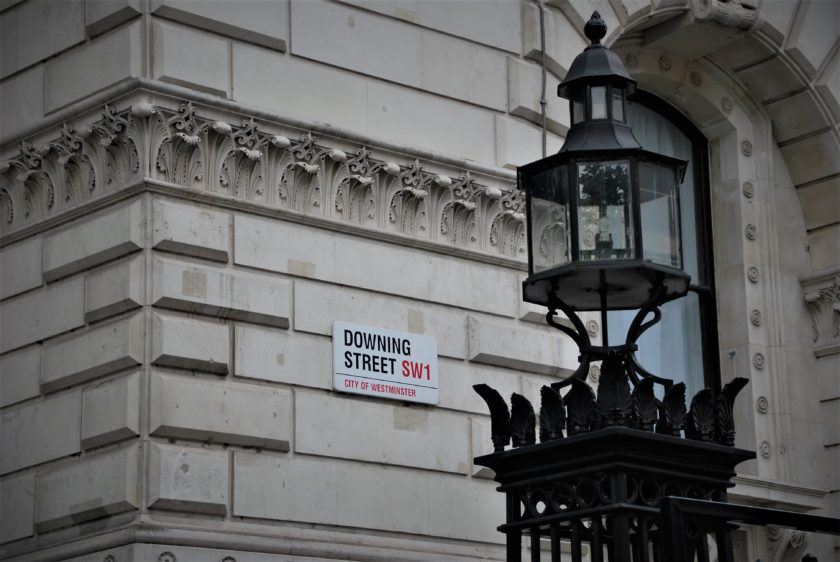The departure of Prime Minister Liz Truss signals further uncertainty for the UK markets, with the third Prime Minister in a year expected to be announced by the end of this month.
In a statement on Thursday, Truss said she “cannot deliver on the mandate” on which she was elected by the Conservative Party and announced her resignation after just 44 days in power.
Her decision to resign comes just hours after Home Secretary Suella Braverman resigned, stating that she had “concerns about the direction of this government”.
The events of this week plunge the UK into further turbulence, after Chancellor Jeremy Hunt announced a number of u-turns on the mini-Budget.
Susannah Streeter, senior investment and markets analyst at Hargreaves Lansdown, warned that the UK will remain in a state of turmoil going forward.
Streeter said: “First her policies went up in flames, then her brief career as Prime Minister. The great political gamble of Liz Truss has spectacularly backfired but not before wreaking significant damage to the UK economy. It will take considerable time before the risk premium attached to UK assets fades away, following the financial nervous breakdown which followed the mini-Budget.”
While the pound crept up in value as Truss resigned and ten-year gilt yields eased, in what Streeter described as “a sign of tacit approval from the bond vigilantes who punished the UK by deserting its government’s debt as worries raced up about fiscal responsibility,” news of Truss’ departure was met with nervousness in the equity markets.
Streeter added: “With the third Prime Minister in just a year expected to be announced by the end of the month, the UK will still be viewed in financial markets as politically unstable. What investors crave is more steadiness and reliability but until they know who will take change and lead an economic recovery, that stability still remains highly elusive which means that neither sterling nor stocks are likely to make any big strides of progress.”
Nigel Green, founder of deVere Group, echoed the sentiment that political uncertainty will fuel financial markets’ fears.
Green said: “I fear that market volatility will not be over despite the resignation of Liz Truss, whose leadership campaign lasted longer than [her] premiership. Investors know that the political chaos that has defined the UK throughout 2022 is nowhere near over and this fuels uncertainty and drives turbulence in financial markets.”
Green said investors will look at the facts, including four UK chancellors, three home secretaries and two prime ministers in the space of four months and the prospect of a new cabinet under the next Prime Minister’s leadership.
Green said: “Currently, there’s 10.1% inflation with a stranglehold over households and businesses and there is no functioning government. To investors the UK looks ungovernable and its economy resembles that of an emerging market not a G7 nation. The pound and gilt markets will remain under pressure for the foreseeable future. UK financial assets remain hugely unattractive for investors right now and markets will reflect this.”
During her 44 days in power, Truss adopted an aggressive economic growth plan comprising a number of tax cuts including the abolition of the 45p tax rate for higher earners and a 1p cut to the basic rate of income tax. However, her plans spooked financial markets, plunging the pound to its lowest level since 1971 and resulted in the sacking of then-Chancellor Kwasi Kwarteng.
Andrew Megson, CEO of My Pension Expert, said: “Truss’ reign has caused a tremendous amount of damage in a short space of time. Her vision was for the UK to punch its way out of trouble. Unfortunately, she has merely piled more financial worries onto households across the country. Financial markets have been put in a spin by wayward economic policy and the Bank of England has said that interest rates will rise faster than expected as it seeks a degree of stability.
“Financial planning has been made very challenging. Take the multiple U-turns over the triple-lock pension – will the Government commit to it or not? How can people map out their financial futures with such inconsistency? We can only hope that Truss’ replacement can quickly bring about calmness, clarity, and certainty, allowing people to effectively plan for the future.”
A number of names have been put forward as potential runners, with a new Prime Minister expected to be announced before Jeremy Hunt makes a fiscal statement on October 31.
Danni Hewson, AJ Bell financial analyst, said: “There are big questions to be answered and they need to be answered quickly. The Conservative Party is promising a quick appointment within days, crucially ahead of the fiscal event scheduled for Halloween.
“And for markets that’s really the key issue – that the independent economic health check needs to be published and policy needs to stand. There can be no more vacillating, dithering or U-turns.
“But can the party really rally behind one person? Can there be a unifying candidate who can heal political wounds and restore confidence that the important business of running the country can actually be put first ahead of political power plays? There are naturally many calls now for a general election, and time will tell whether that can be side stepped by the incoming prime minister.
“Volatility which has been a hallmark of global markets this year is most definitely here to stay in UK markets, at least for now. Time is short and credibility is on the line, but it is ordinary people’s finances that should be the priority.”
However, Stuart Clark, portfolio manager at Quilter Investors, said a rushed process to elect a new leader and proceed with the Autumn statement will not “allay concerns” and anything short of a fresh mandate is unlikely to assuage international concerns about the stability of the UK government.
Clark said: “This unfortunately will continue to act as a further headwind to unleashing the opportunities that exist within the economy and stock market. The UK equity market has been beaten up and could be considered attractive for investors at current valuations. However, with political risk becoming further embedded into the system, investors are going to have to wait before it becomes viable once again.
“One silver lining we are seeing is the gilt market and sterling reacting positively to Truss’ departure. This, coupled with the Deputy Governor of the Bank of England’s comment that the bank may not raise rates as high as the market expected, does provide a steadying feeling following the volatility of the last few weeks.
“However, fiscal policy is still very much up in the air, and with inflation continuing to ravage consumers’ incomes, the economic picture still looks challenging and will for some time, regardless of who sits in No.10.”





























